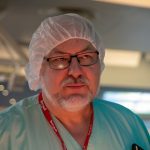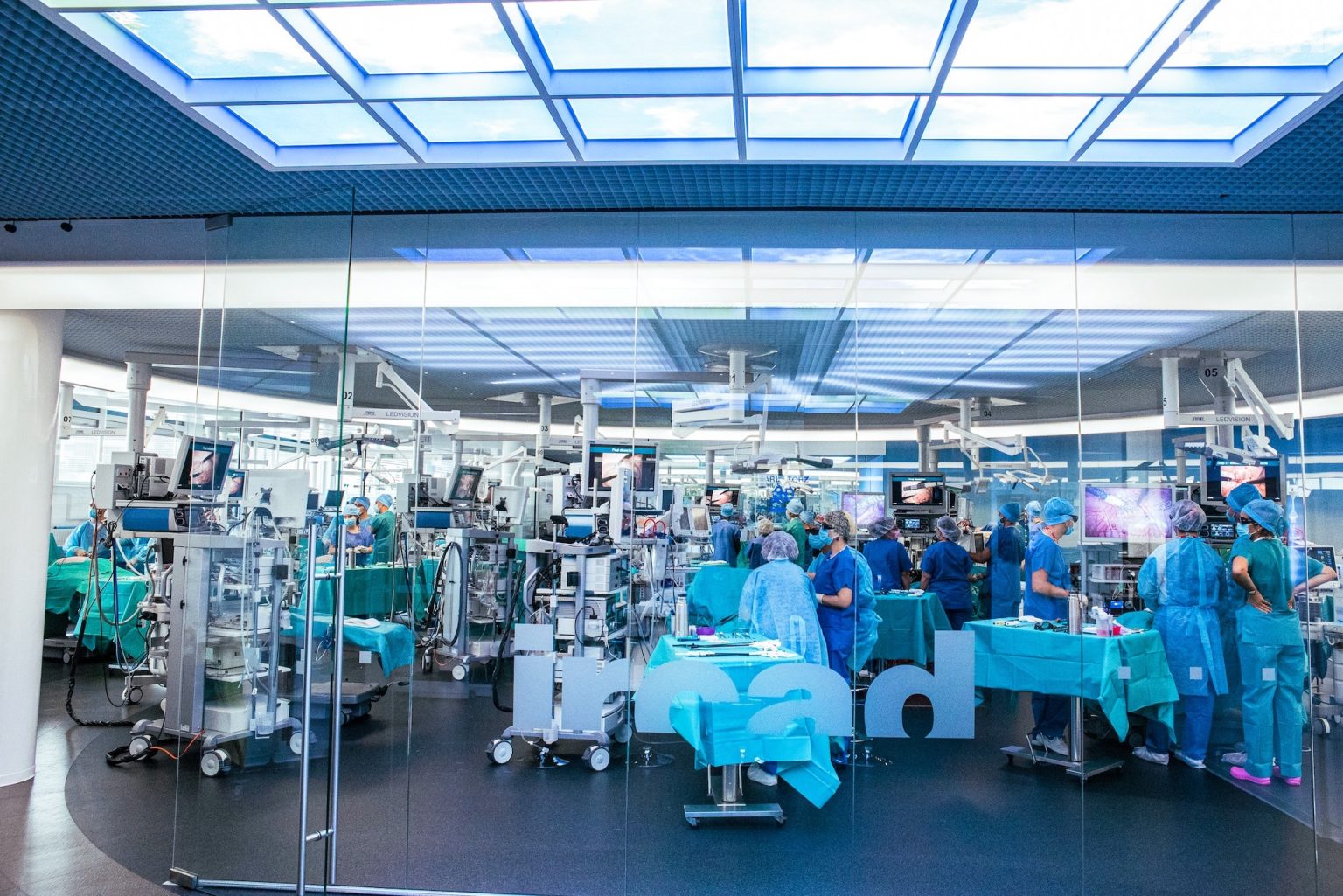
World Obesity Day will be observed, as is customary each year, on March 4th. Obesity is a growing scourge worldwide. In France, 17% of the population suffers from it, while in the United States, the figure stands at 35%. Obesity constitutes a standalone disease, often interconnected with other conditions such as metabolic abnormalities (e.g., type 2 diabetes, high cholesterol, triglycerides), cardiovascular ailments, hypertension, sleep apnea, musculoskeletal disorders, and more. Additionally, it heightens the risk of cancer; in 2022, the World Health Organization (WHO) cautioned that obesity could potentially surpass smoking as the leading risk factor for cancer.
Obesity significantly diminishes life expectancy, with a proportional decrease corresponding to weight (life expectancy can be reduced by 10 years for individuals with severe obesity). Moreover, it profoundly impacts the professional integration of affected individuals and, more broadly, the economy. Presently, the OECD estimates that member countries will need to allocate an average of 8.4% of their healthcare budgets to address overweight-related issues over the next 30 years.
Since its inception, IRCAD has maintained a keen interest in obesity and the training of surgical techniques designed to address it, driven by the belief that this approach would yield substantial benefits for patients. Numerous studies have substantiated this notion, demonstrating that surgery can yield superior outcomes compared to alternative treatments for individuals grappling with severe obesity. Such interventions not only lead to marked improvements in metabolic disorders but also contribute to a notable reduction in overall mortality rates. To provide a comprehensive overview of these advancements, Dr. Michel Vix, a co-founder of IRCAD, a member of the European Institute of Telesurgery (EITS), and an expert in bariatric surgery, assesses the progress of this rapidly expanding discipline ahead of World Bariatric Day. This evaluation sheds light on how the field has revolutionized the management of obesity.

Professor Jacques Marescaux
President and Founder of IRCAD
The management of obesity, akin to cancer treatment, is evolving towards a more multimodal approach, integrating surgical interventions, pharmaceutical options, and lifestyle modifications.

Dr. Michel Vix
Founding member of IRCAD and specialist in bariatric surgery
As a founding member of IRCAD and a general and digestive surgeon, Dr. Michel Vix specializes in morbid obesity surgery. He holds membership in various scientific societies, including the Association française de chirurgie endocrinienne and the Société française de chirurgie digestive.
Dr. Michel Vix: It was likely a passion for surgery and a drive for advancement. I first met Professor Marescaux at the beginning of my internship in Strasbourg, during the non-specialized semester I spent in Professor Sibilly’s department. At that time, the activities of the general and endocrine surgery department were divided between emergency care and surgical procedures. I approached Mr. Marescaux, who was an associate in the department at that time, seeking the opportunity to undertake surgical duties in addition to emergency care. This would better prepare me for my subsequent surgical placement in Lille.
At the end of my training, in 1992, when I returned to the department, I reunited with Professor Marescaux. This time, I had greater responsibilities comparable to those of junior doctors today, both in digestive and endocrine surgery. It was during the early stages of IRCAD’s development: I witnessed the initial discussions surrounding the project before joining the institute upon its establishment in 1994. I actively participated in its courses and teachings. We were all driven by the desire to advance minimally invasive surgery, particularly through emerging technologies such as robotics.
Dr. M. V. : Bariatric surgery is aimed at people suffering from morbid obesity, defined by a body mass index of over 40, or severe obesity associated with co-morbidities such as diabetes, hypertension or hypertriglyceridemia, all of which can be improved by surgery. The various techniques are based on the principle of reducing food absorption and appetite. But surgery alone is not enough. It is part of a multidisciplinary approach that combines an understanding of the origin of obesity, the implementation of lifestyle actions, therapeutic education and psychological support. The success of the operation depends on the commitment of the patient, who must be encouraged to adopt new eating habits, engage in regular physical activity and take supplements to compensate for the loss of nutrients following the operation. Regular medical follow-up after surgery is also essential.
Dr. M. V.: Obesity surgery has undergone significant development in recent decades. Its origins trace back to the 1950s, a time marked by efforts to comprehend the underlying causes of obesity and devise strategies to assist obese individuals in losing weight. Initially, surgical interventions primarily involved the removal of a portion of the intestine to restrict food absorption in patients. However, this approach was complex, especially with the limited surgical instruments available at the time. It was typically reserved for severe cases, and the procedure carried considerable risks for patients, including complications arising from excessive malabsorption.
From the 1960s onward, surgical techniques began to incorporate modifications to the stomach. One of the pioneering procedures, as described by Mason, involved both narrowing the stomach to resemble an extension of the esophagus and creating a partition within the organ by attaching a band, thereby promoting early satiety. Subsequent advancements included the introduction of bypass procedures, which aimed to connect the jejunum (the central part of the small intestine responsible for nutrient absorption) to the stomach. The Scopinaro procedure followed, involving the connection of the stomach to the outermost segment of the small intestine to further limit nutrient absorption. Additionally, Marceau and Hess developed the biliopancreatic diversion, significantly shortening the digestion process by digestive juices. These procedures, founded on the principles of stomach reduction and malabsorption, were highly intricate. While some, such as biliopancreatic diversion, are still occasionally performed today, they have been associated with rapid weight loss and the resolution of comorbidities such as diabetes and hypertriglyceridemia. However, they necessitated extensive postoperative supplementation (including vitamins, iron, and protein), posing both restrictive and costly challenges for patients.
During the 1980s, the first gastric bands emerged, initially in non-adaptable forms and later in adaptable designs. These bands function by partitioning the stomach into two interconnected pouches: a smaller one positioned at the top of the stomach fills rapidly, facilitating quicker satiety. This period witnessed the democratization of obesity surgery, characterized by the introduction of new techniques and the adoption of laparoscopy, alongside the development of surgical instruments that streamlined procedures. Additionally, in the late 1980s (from 1987 onward), previously open surgical procedures were adapted to laparoscopic techniques.
Furthermore, sleeve gastrectomy was introduced during this era. This procedure involves reducing the stomach by approximately two-thirds along its length, resembling a sleeve, and involves the removal of the section of the stomach responsible for producing the hunger hormone ghrelin. Sleeve gastrectomy exerts both mechanical and hormonal effects on appetite regulation. Presently, it stands as the most commonly performed obesity surgery procedure and can be complemented by a biliopancreatic bypass to enhance the effects of malabsorption.
Dr. M. V.: Since 1996, IRCAD has played a pivotal role in bariatric surgery training. The institute has facilitated the training of surgeons in diverse bariatric surgery techniques, initially focusing on laparoscopic approaches and subsequently integrating the rapidly evolving robotic approach. To date, over 1,600 surgeons have undergone training in bariatric surgery at IRCAD in Strasbourg. Moreover, complementing this training, numerous individuals have benefited from instruction via the WebSurg online university, which hosts over 350 dedicated videos showcasing various minimally invasive bariatric surgery techniques.
Furthermore, on the research front, IRCAD has contributed significantly to the advancement of scar-free surgery through the development of flexible endoscopy, spearheaded by the efforts of Silvana Perretta.
Dr. M. V.: I think that endoscopy will make headway, as will combined endoscopic and laparoscopic surgery. Today, certain teams are developing magnetic surgery: this involves creating a communication channel between two organs, without incision, by gluing them together using magnets. The pressure exerted on the tissue by the magnets causes ischemia, opening up a communication channel. With this technique, we can imagine taking a loop of intestine to the stomach, attaching it magnetically and, after 15 days, creating a connection, thus modifying the anatomy of the digestive system. This technique, which is currently highly confidential, will probably enable less invasive surgery in the future. Indeed, new endoscopic techniques for guiding and placing magnets will probably eventually make surgery unnecessary.
I am of the belief that effective solutions will arise from the integration of various approaches, including both surgical or interventional procedures and pharmaceutical interventions. Combining drugs with surgical interventions holds promise for achieving better control over obesity. Currently, GLP-1 analogues represent a significant breakthrough in the treatment of diabetes and obesity, as they target the digestive tract, modulating the rate of glucose absorption in the intestine and influencing the sensation of satiety. Furthermore, ongoing advancements in our understanding of the physiological mechanisms underlying obesity are paving the way for the development of additional therapeutic molecules. Looking ahead, the long-term management of obesity is poised to become increasingly multimodal, resembling the approach adopted in cancer treatment, which combines surgery, pharmaceutical agents, and lifestyle modifications.
Since 1996, the inaugural year of the first bariatric surgery training course at IRCAD:
– 32 on-site courses have been conducted in Strasbourg, training 1,620 surgeons.
– Online, the free WebSurg digital university boasts 3,129 active members specializing in bariatric surgery.
Since its establishment in 2000, it has disseminated 352 videos exclusively dedicated to bariatric surgery.
About IRCAD
Founded in 1994 by Professor Jacques Marescaux, IRCAD is an institute dedicated to training and research in minimally invasive surgery. This Strasbourg-based institute is globally recognized for the excellence of its training programs, which serve nearly 8,800 surgeons from around the world each year. Additionally, IRCAD offers virtual training through the Websurg online university, which is entirely free of charge and has over 470,000 members connected worldwide.
For more information, please visit https://www.ircad.com
Stay updated on the IRCAD podcast, “Beyond IRCAD”.
We trust you have found this edition of the IRCAD newsletter enjoyable.
For additional information, subscription inquiries, or to unsubscribe, please contact :
FINN Partners – sante@finnpartners.com
Don’t miss the latest news from IRCAD.
Sign up here for our newsletters and communication mailings
to stay informed about us and our courses

Please note that the IRCAD administrative board and staff are closely monitoring the evolving COVID-19 situation, in full compliance with all applicable laws and regulations in France. The health, safety, and well-being of our participants, experts and staff are our top priority!
Despite the current context, the IRCAD stands firmly by your side to help you acquire knowledge and skills. Come and join us !
We would like to draw your attention that the « Vaccine Pass » is now mandatory in France since end of January 2022 and replaces the former « Health Pass » to access places that are open to the public, such as cinemas, museums, cafés and restaurants, hotels as well as the IRCAD Institute which welcomes participants in the framework of its courses and seminars. Thus, a PCR test without vaccination is no longer sufficient to take part in our courses.
The vaccine pass includes a proof of the following (one of the 3 items is sufficient):
Further information about the new vaccine pass can be found at :
We very much hope to be able to count on your kind understanding of those rules which have been set by the French Government and which our Institute is required to apply